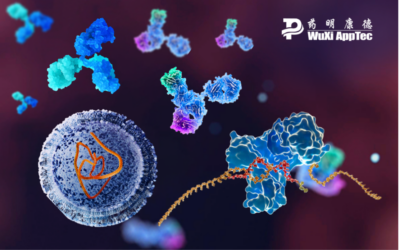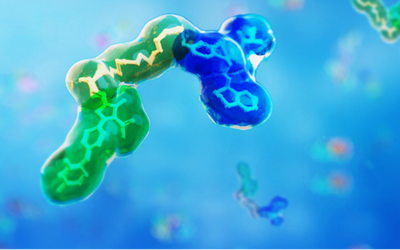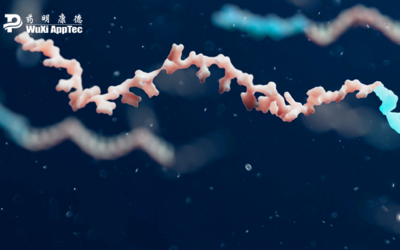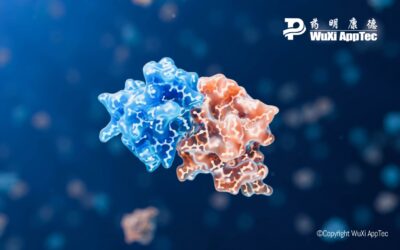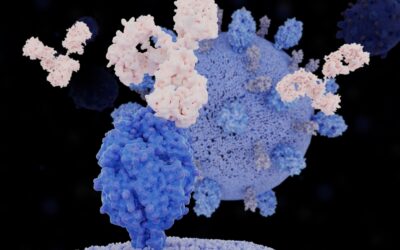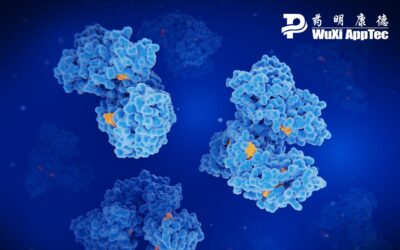Developing a novel non-oncology small molecule drug involves much more than discovering a promising compound. Before advancing to clinical trials, regulatory authorities require comprehensive safety data to support an Investigational New Drug (IND) application. For non-oncology indications, this data must be generated through a sequence of preclinical studies—each designed with a specific purpose, interdependent timelines, and clearly defined regulatory expectations.
Author
Key Challenges in Oligonucleotide Bioanalysis—And How to Overcome Them
Oligonucleotide therapeutics (oligos) have emerged as a groundbreaking class of drugs with the potential to treat previously untreatable diseases. By targeting RNA or modulating protein function, therapies such as antisense oligonucleotides (ASOs), small interfering RNA (siRNA), and aptamers offer new avenues for precision medicine. However, their development is not without hurdles, particularly in bioanalysis. Their unique properties demand advanced analytical methods to ensure accuracy, stability, and regulatory compliance.
What Is Large Molecule Preclinical Testing? Overview, Objectives, and Key Test Methods
Large molecule drug candidates face unique challenges in preclinical testing due to their complexity, but with the right strategies, researchers can navigate these hurdles and develop novel therapeutics. This comprehensive guide walks you through everything you need to know about large molecule preclinical testing, ensuring potential risks are minimized and the drug’s full potential is realized.
6 Strategies to Overcome PROTACs’ Developmental Challenges
Proteolysis-targeting chimeras (PROTACs) are some of the most eagerly discussed therapies in the world due to their potential to treat conditions previously thought undruggable. Their ability to degrade rather than inhibit proteins means they can better treat complex diseases such as cancers and neurodegeneration, giving them advantages over traditional small molecule drugs.
The Future of Precision Medicine: How Bioanalysis is Transforming Personalized Healthcare
Imagine a healthcare landscape where treatments are precisely tailored to an individual’s unique genetic profile, environment, and lifestyle. This vision is no longer a distant possibility—it is the reality of precision medicine.
Bioanalysis of ADC Drugs by LC-MS/MS
Antibody Drug Conjugates (ADCs), which consist of antibodies, payload and linkers, are an innovative therapeutic approach targeting various types of tumors and cancers. It can improve the therapeutic parameters of payload and reduce systemic cytotoxicity. ADCs rely on highly targeted tumor antigen recognition and effective endocytosis to recognize and bind to specific tumor antigens on the cell surface.
5 Tips to Navigating Antisense Oligonucleotide Drug Development
Antisense oligonucleotides (ASOs) have shown great promise in targeting disease-causing genes, offering hope for patients suffering from genetic disorders that were previously difficult to address. ASOs bind to specific RNA sequences, preventing the production of harmful proteins or altering gene expressions.
Key Toxicology Considerations for Large-Molecule Therapies
Large molecule therapies hold immense promise for treating a range of diseases. However, developing large molecule therapies has unique challenges, particularly in preclinical testing. Toxicology studies are crucial because they provide essential data about the drug’s biological effects and safety profile.
Overcoming the challenges of preclinical evaluations for PROTACs
Proteolysis Targeting Chimeras (PROTACs) have brought fresh hope for treating diseases that were previously considered “undruggable.” They offer a promising alternative to traditional small-molecule inhibitors and biologics. But despite the excitement building around the potential of these therapies, preclinical evaluations of PROTACs can present distinct challenges, including pharmacokinetics (PK), pharmacodynamics (PD), safety, and bioanalytical hurdles.
Bioanalytical Strategies for Fusion Proteins
Fusion proteins are a new type of multi-domain artificial protein produced by fusing a biologically active functional protein molecule with other natural proteins (fusion partners) using genetic engineering, chemical modification and other techniques. This can optimize protein performance and even produce new functions. Functional protein molecules are generally endogenous ligands or their receptors, including cytokines, growth factors, hormones, enzymes or peptides and other active substances. Common fusion partners include immunoglobulin (Ig), albumin, transferrin, etc. Among them, fusion proteins based on the fragment crystallizable (Fc) are most widely used.
What Is Small Molecule Preclinical Testing? Overview, Objectives, and Key Test Methods
Small molecule drugs are the most common type of therapeutic on the market. However, that doesn’t mean they are easy to develop. Small molecule preclinical testing is a rigorous and essential process that enables researchers to understand how they behave in and out of the body, including efficacy and toxicity – before they get to human trials. In this guide, we cover everything you need to know about small molecule preclinical testing.
Making the Most of the Golden Age of Small-Molecule Oncology Drugs
Many of humanity’s most impactful pharmaceuticals, including penicillin and aspirin, are small-molecule drugs. Over time, the focus of research has shifted toward biologics, also known as large-molecule drugs. In 2016, for example, eight of the 10 best-selling drugs in the world were biologics. However, small-molecule drugs are now making a comeback as research advances and technology improves. One key area where small-molecule drugs are making the most significant impact is oncology.


